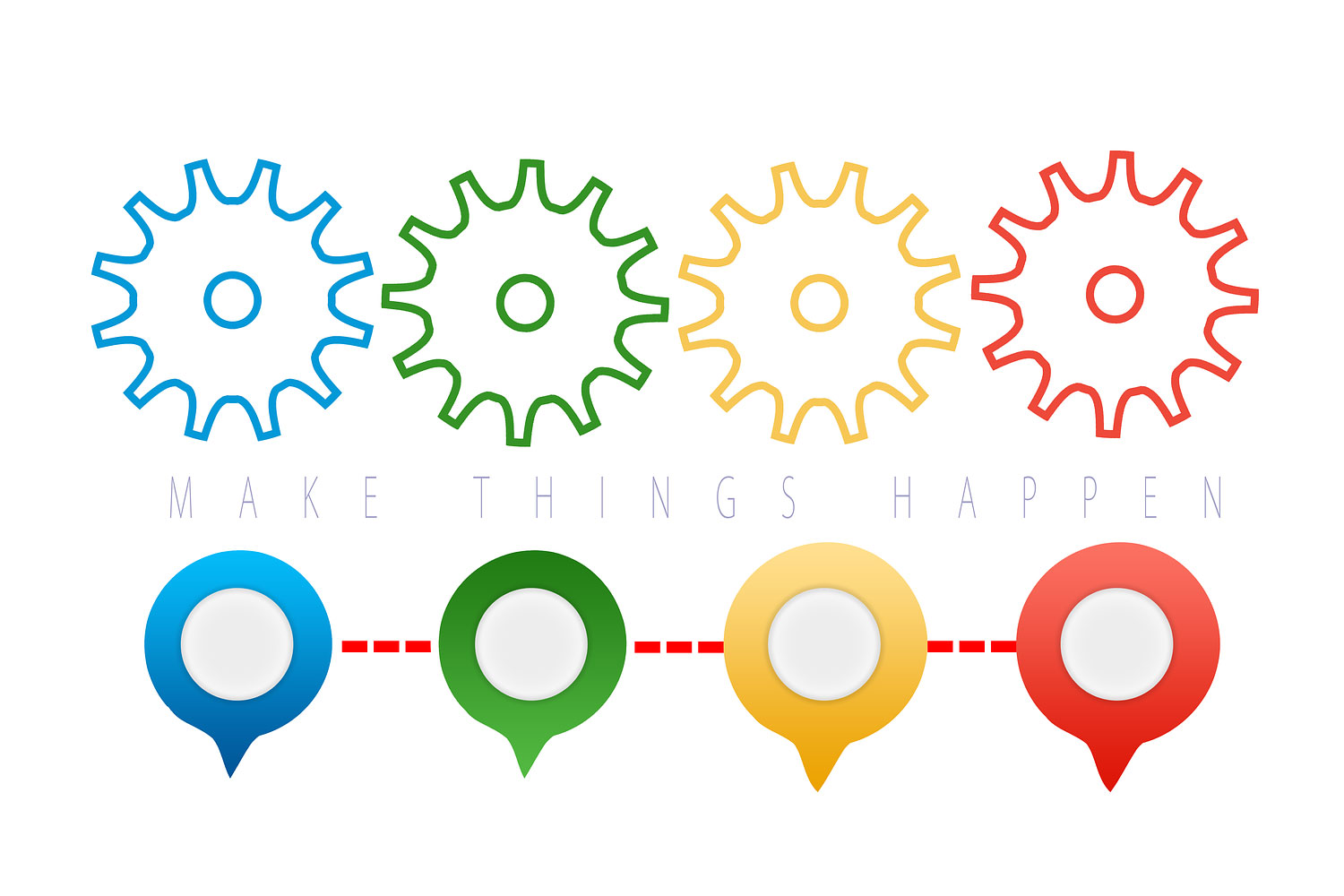WHY IS EMOTIONAL INTELLIGENCE SO IMPORTANT IN TODAY’S WORLD?
September 16, 2020
Are you aware of the single, most important quality that all the top leaders in the world possess? Do you know what you need to have more full-filling personal and professional relationships? If you guessed it to be Emotional Intelligence, you’re right! But what is Emotional Intelligence, and why is it so crucial in today’s world?
Emotional intelligence could be defined as the ability to be aware, understand, evaluate, and manage your emotions. It also includes understanding and responding to the feelings of those around you. Emotions are a powerful element, and thus, one needs to be careful while dealing with them; whether they’re other’s emotions or your own. You can establish trust, influence relationships, and lead with resilience by simply using Emotional Intelligence as your primary tool.
THE FIVE COMPONENTS OF EMOTIONAL INTELLIGENCE ARE:
Self-awareness:
Self awareness is being fully aware and enlightened about your feelings, strengths, weaknesses, values, virtues and ambitions. It enables you to carry out regular self-assessments in a rather realistic fashion, to accept criticism in a constructive way and to trust and believe in yourself. One way to gain enhanced self awareness is by labelling your exact emotions instead of simply generalizing them.
For example, saying that you’re feeling content instead of just saying you’re happy or saying that you’re feeling annoyed instead of just saying you’re angry.
List of emotion terms:
|
Angry |
Sad |
Anxious |
Hurt |
Embarrassed |
Happy |
|
Grumpy |
Disappointed |
Afraid |
Jealous |
Isolated |
Thankful |
|
Frustrated |
Mournful |
Stressed |
Betrayed |
Self Conscious |
Trusting |
|
Annoyed |
Regretful |
Vulnerable |
Isolated |
Lonely |
Comfortable |
|
Defensive |
Depressed |
Confused |
Shocked |
Inferior |
Content |
|
Spiteful |
Paralyzed |
Bewildered |
Deprived |
Guilty |
Excited |
|
Impatient |
Pessimistic |
Skeptical |
Victimized |
Ashamed |
Relaxed |
|
Disgusted |
Tearful |
Worried |
Aggrieved |
Repugnant |
Relieved |
|
Offended |
Dismayed |
Cautious |
Tormented |
Pathetic |
Elated |
|
Irritated |
Disillusioned |
Nervous |
Abandonment |
Confused |
Confident |
Self Regulation:
Self Regulation is the ability to control and appropriately redirect your emotions and impulses depending on the situation. It helps you deal with change and control your feelings in sticky situations. It enables you to lead with integrity and create for others, an environment with greater levels of trust.
Motivation:
Being motivated simply means being driven in a way that enables you to achieve all your goals and ambitions. It means that a person is optimistic even in the face of defeat. It makes people accept new challenges and be more passionate about the things they do. They strive towards improvement and do not point fingers at others when they fail.
Social Skill:
Social skill means having the ability to manage, maintain and enable your relationships to move towards a desiderate goal or direction. It enhances your leadership skills, ability to persuade others as well as your social network. It enables you with an expertise in building and leading teams to success.
Empathy:
Being empathetic means considering and respecting the feelings of those around you. Empathy should influence your decision making, negotiations as well as your daily speech. Being empathetic allows you to engage in more fulfilling and nurturing relationships. It gives you the ability to influence others, work better with multiple cultures and attract better talent.
Emotional Intelligence can be applied in each and every aspect of life. With the ongoing pandemic, everyday things have taken a shift into the digital world; a transformation which is an excellent step towards development but one which also proves to be highly prone to misinterpretations and misunderstandings. Therefore, it is essential to be as empathetic as possible while dealing with your employees, colleagues and leaders.
There are multiple ways in which you could incorporate Emotional Intelligence in your professional life as well as in your daily life:
Writing profound emails:
Emails have become an unavoidable part of our lives. Imagine sending someone a long, heartfelt email, and they send you a one-word reply? How would that make you feel? There would be several different scenarios stirring up in your head, making you wonder what they meant. Be more empathetic while writing emails. Write more explicit emails and set the tone depending on the relationship you have with the person. It’s easier for the receiver to understand what you feel when you mention your emotion in an email.
For Example, You have done a great job on the article, and I’m quite pleased with your work. I think you could modify the conclusion a bit. Other than that, it’s perfect.
Running impactful meetings:
Doesn’t everyone hate long and unnecessary meetings? But meetings can be fun. You read that right. You can make meetings feel like fun rather than an obligation using a few emotional intelligence hacks.
- Conduct shorter meetings consisting of people relevant to the topic of discussion
only. - The leader’s emotions are highly contagious. Plan out the mood for your
meeting, depending on the situation to create an environment resulting in high
productivity. - Read people’s faces and expressions during a meeting. Doing this not only helps
you understand who influences whom, but it also enables you to figure out any
hidden conflicts amongst the group.
Using Empathy to understand and resolve conflicts:
Most of the conflicts we face in everyday life can be solved by using one simple trick: Communicating. Being emotionally intelligent enables you to listen deeply to people you’re conflicting with in a calm and composed manner. It is easier to find a common ground that satisfies the conditions and needs of both or all the parties involved in a faster, more efficient way. Being more empathetic towards someone with contradicting opinions also enables you to create a more trustworthy environment for the opposite person and therefore helps you resolve conflicts faster.
Deliver and acknowledge feedback positively: Receiving feedback generally leaves
people feeling overwhelmed, disheartened, angry, embarrassed or demotivated. But
why does this happen? People typically perceive feedback as criticism. Therefore,
leaders need to deliver tough feedback in a variety of different ways so it is easier to
grasp for their employees.
- Maintain dialogue between you and your employee during the feedback session.
- Don’t sugarcoat the tough feedback. Don’t be harsh with it either. Don’t put your
employees in a position where they feel forced to play defensive. - Do not make them feel like their job is an obligation and that you’re nothing but
their boss. Correct them in a way that they look to you as their mentor and guide. - Talk to your employees with an intention to guide and nurture them rather than
showing them they were born.
Make smarter decisions:
An emotionally intelligent person can control and manage his emotions well. To engage in smarter decision making, it is crucial not to allow any kind of inappropriate self-interest, emotional connections, personal conflicts and interests to influence your decision making. A few ways to enhance your decision making are:
- Jot down your options and their benefits.
- Consult experts for unbiased and clearer views and options regarding the
subject. - Make sure there are no personal indifferences influencing your decision.Talk to your employees with an intention to guide and nurture them rather than
- Direct your decision making thought process with regards to the company’s
interests only.
Negotiating using Emotional Intelligence:
You can utilize emotions while negotiating in order to reach a common ground without any party incurring losses. Refrain from using any negative emotions as elements as this simply worsens the negotiation for both or all parties.
1) Managing your anxiety: Anxiety is a feeling of distress in reaction to threatening situations. It makes you want to escape the situation instead of facing it. When your nervousness is noticeable to your opponent, it gives them a victorious feeling. It may also cause you to give up the discussion because negotiations require you to be persistent but your anxiety requires you to get out of there! A few ways to manage your anxiety are:
- Work on your negotiations skills.
- Get some perspective about the opponent’s interests, needs and motivation.
- Find a third party negotiator.
- Build healthy scepticism while taking advice from anyone.
2) Managing your anger: Anger is a negative emotion generally directed at someone else. Although anger has proven to win negotiations, it comes with a cost. The cost of your trust, reliability and likeness in the long run between you and the opponent’s party. Anger can cause things to downhill and therefore it’s best to keep your anger in control during a negotiation. Ways to prepare an emotional strategy for your negotiations:
- Prepare for the negotiation.
- Keep your emotions in check by asking yourself how you feel.
- Be confident.
- Remember that it’s normal to feel anxious.
- Be careful with your statement and try to control any anger that’s building up.
- Do not use emotions to trigger your counterparts.
- Note down the possible outcomes of the negotiation and they would make you or your counterparts feel.
Working with different cultures:
While working with different cultures, it is crucial to understand and learn how people from that particular culture function and use that information not only to communicate more effectively but also to develop better relationships and greater trust. Pay attention to the smallest of details regarding them and their culture, write it down and use it to create a greater impact on them. It not only shows effort, but also consideration and care.
Empathetic leaders are successful leaders:
Leaders need to show empathy. Your employees are not your resources; they are your assets. Treat your employees like humans first and employees after. A kind word, a smile, some subtle appreciation or even calling them out by their names goes a long way for your employees. Provide your employees with positive feedback so that they are motivated to work better and harder. It’s important to be kind and show empathy to each one of your employees because you may not be aware of the problems they may be facing in their personal life. Check on your employees during these tough times to make sure they’re doing alright.
Being emotionally intelligent not only influences your relationships but also every aspect of your personal and professional life. It helps you find peace and happiness and drives you towards success. The change is within you and you are only one decision away



Leave a Reply